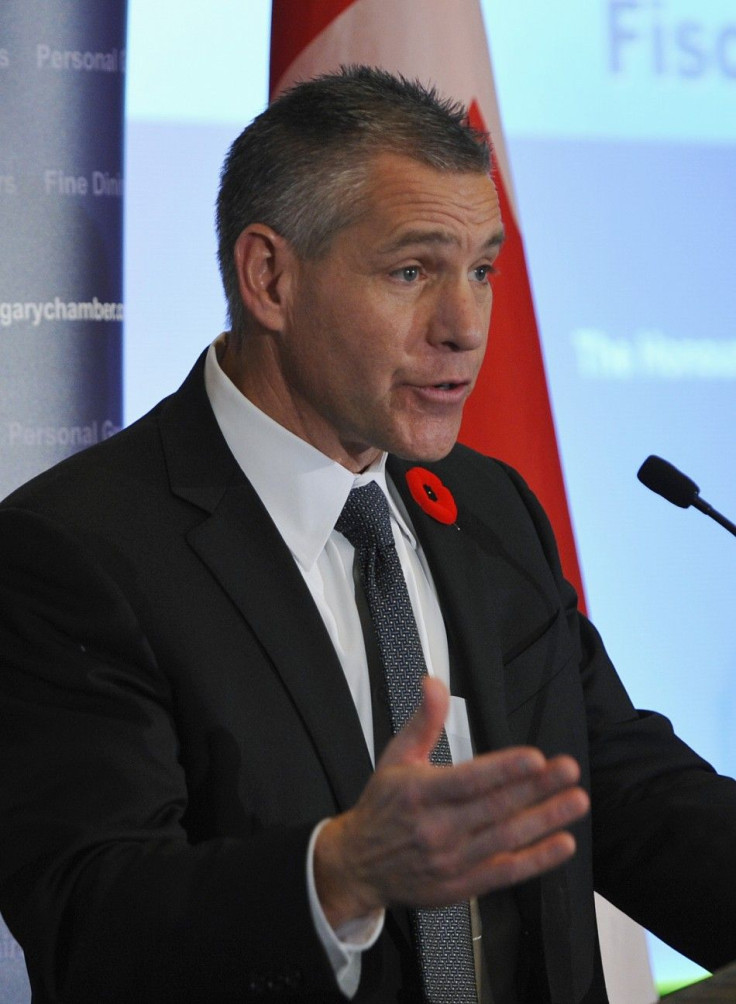TransCanada Officials Remain Positive Keystone Pipeline Will Be Built

A proposal by Canadian oil and gas company TransCanada to expand a crude oil pipeline in the United States has received what could be a death sentence.
The Canadian company is seeking approval from Washington to add 1,661 miles of piping from Alberta to Nebraska and from Oklahoma to Texas, to an already functioning and leviathan pipeline stretching from Alberta to Manitoba, Illinois and Oklahoma. Since the project's outset, environmental groups have called foul.
The aim, said TransCanada, is to move 1.1 million barrels of oil to U.S. refineries.
But that is looking less likely now following President's Barack Obama's announcement last week to shelve any decision regarding the project until after the 2012 election, and the State Department's announcement that it would look for an alternative route by 2013.
The decision has proven to be a contentious one. The United States Hispanic Chamber of Commerce announced today their support for the pipeline and requested it be green-lighted swiftly, and the American Petroleum Institute has long expressed its solid support for the pipeline.
However, environmental and grass-roots groups are worried the pipeline will endanger vital farmland, and threaten the High Plains' largest source of water - the Ogallala Aquifer. And following last week, they might have won their argument.
Still, TransCanada officials are optimistic the deal could go on.
Russ Girling, the oil company's president, in a statement last Thursday announced TransCanada will continue to work for the pipeline's approval and remains optimistic the project will go ahead.
This project is too important to the U.S. economy, the Canadian economy and the national interest of the United States for it not to proceed, Girling said.
And company spokesman Terry Cunha, reiterated that point Monday. He said the comany is looking for alternative routes for the pipeline that would avoid the Nebraska Sandhills.
But if it doesn't get approved, TransCanda could very well sell it's oil reserves elsewhere. Last week Joe Oliver, Canada's Natural Resources Minister, said Ottawa would continue to promote its oil reserves throughout the world. That could very well translate into a distancing of Canadian oil interests away from the U.S.
With $2 billion already invested in the project, TransCanada is not likely to walk away from it, but it will be increasingly difficult for the oil company to carry its debt without receiving some returns, said Charles Ebinger, director of the Brooking's Institute on energy security initiative.
Even if the pipeline is approved by 2013, or if an alternate route is suggested, the extra time TransCanada would have to wait before having an operational pipeline could force the company to cancel the project, said Ebinger.
There is a strong possibility of that, Ebinger said.
While that would hurt the company, the message it sends to Canadian oil businesses could be worse. Ebinger said the president's decision could set a precedent for future business transactions between Canada and the U.S.
On the surface, the plan is pretty clear. The expanded pipeline promises to add to the country's access to Canadian oil fields thus reducing the country's dependence on Gulf oil, and it also promises to create jobs, which in this economy is a good thing.
However, Nick Berning, a spokesman for Friends of the Earth, a grassroots environmental group operating in 76 countries which has actively fought the pipeline's expansion, said the U.S. does not need Canadian oil. Any loses in energy production can be made up by investing in renewable technologies, he said.
It's our hope that [the delay] will kill the pipeline, Berning said. It's simply not true that we need this oil.
© Copyright IBTimes 2024. All rights reserved.





















